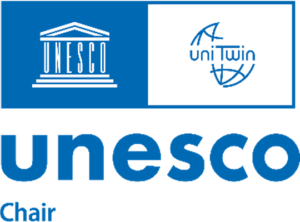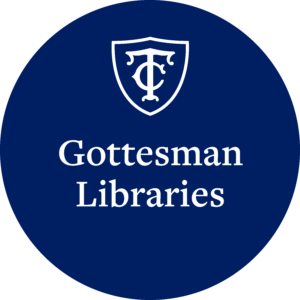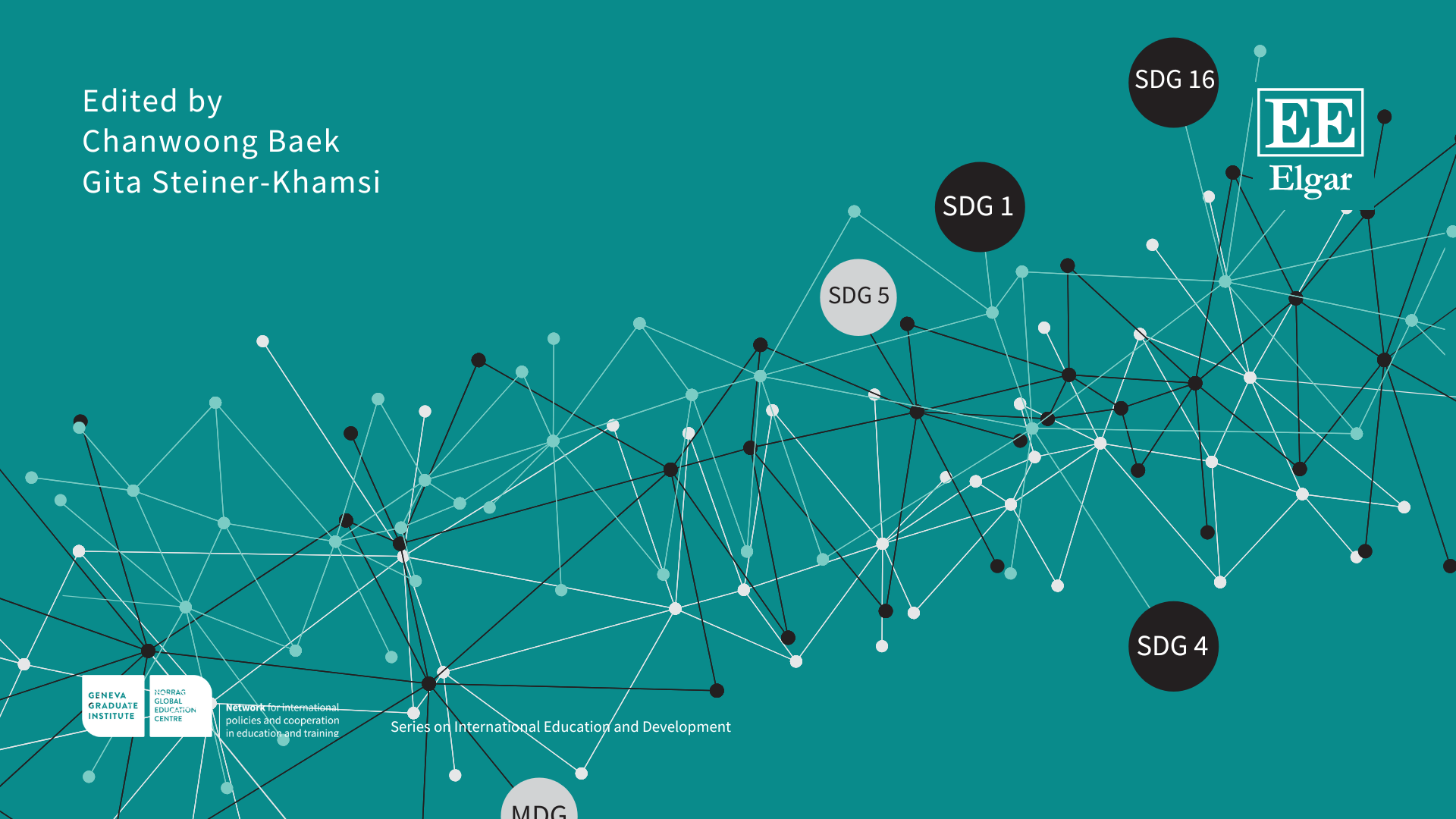Book Launch - The Rise of Knowledge Brokers in Global Education Governance
Wednesday 22 January 2025
14:00 to 15:30 CET
Online
Event Highlights: The Rise of Knowledge Brokers in Global Education Governance
On 22 January 2025, NORRAG officially launched the sixth book of the NORRAG Book Series on International Education and Development titled The Rise of Knowledge Brokers in Global Education Governance. The book, edited by Chanwoong Baek and Gita Steiner-Khamsi, delves into how policymakers orient themselves in an era of surplus information, providing evidence and case studies on knowledge brokers’ emerging and growing role in education policy and planning. In the book, contributors – from academics to experts and practitioners – examine key actors’ roles and strategies and highlight how knowledge brokers have evolved to be agents of social change in education. This event was co-sponsored by GPE KIX EMAP, the UNESCO Chair in Comparative Education Policy and the Gottesman Libraries at Columbia University’s Teachers College.
After the opening remarks by Moira V. Faul, Executive Director at NORRAG, the event proceeded with a presentation of The Rise of Knowledge Brokers in Global Education Governance by its editors, Chanwoong Baek, Assistant Professor at the Geneva Graduate Institute and NORRAG’s Academic Director, and Gita Steiner-Khamsi, William Heard Kilpatrick Professor of Comparative Education at Columbia University’s Teachers College.
The Rise of Knowledge Brokers in Global Education Governance is an essential publication, bridging the gap between research evidence and policy planning, especially in the face of global disparities in evidence production between the Global North and South. Within this background, knowledge brokers critically contextualize information and remove barriers to its application, facilitating relationship-building and allowing for more meaningful decision-making, as education governance becomes more decentralized. This publication reaches its objective by providing a space to both those who analyze, examine, and critically reflect on knowledge brokering, and knowledge brokers themselves, whose careers range from the OECD to the national governments, to present actionable and thoughtful strategies and reflections benefitting stakeholders in education reform.
Panel One – Institutional Logics and Efforts in Knowledge Brokerage
The first panel on “Institutional Logics and Efforts in Knowledge Brokerage” included Melissa Mouthaan, Analyst at the OECD, Samuel Kembou, Global Lead on Learning and Evidence at the Jacobs Foundation, Tricia Wind, Program Leader at the Global Partnership for Education Knowledge and Innovation Exchange (GPE KIX) and IDRC, and Michael Ward, Senior Policy Analyst at the OECD. The conversation initially centred around ways and strategies knowledge brokering organizations engage in the practice.
The panellists stressed the importance of multi-partner coalitions in bringing together several stakeholders, from the government to research institutions and practitioners, to promote the use of evidence in education reform, as well as the need to agree on what evidence is and which evidence can be considered valuable. In the context of multi-partner coalitions, stakeholders have the opportunity and agency to learn from each other about which practices, strategies, and evidence best suit their specific challenges. A point of agreement among all panellists was that knowledge brokers must always strive to build human-centred, demand-driven relationships with stakeholders and should always maintain high standards of institutional credibility and quality to ensure trust.
Throughout the Q&A session, panellists were asked to weigh in on who they consider to be the most consequential stakeholder, means to correct manipulative knowledge, and their personal views on whether knowledge brokering is yet another instance of South-South cooperation. Concerning the first question, the panellists had differing perspectives. While several stakeholders – from think tanks to policy institutes – play key roles in the process of knowledge brokering, it was also argued that governments are in the best position to implement policies and incentives for in-country actors to mobilize knowledge. Concerning the second question, panellists believed ensuring all partners and stakeholders agree on the definition of evidence is crucial to reducing the likelihood of producing invaluable evidence. Finally, concerning the latter question, panellists disagreed with the notion that knowledge brokering is similar to the 1980s-90s South-South cooperation, emphasizing that today beneficiary countries have more agency from donors concerning who they choose to connect and exchange knowledge with.
Panel Two – Local Contexts and Inequalities in Knowledge Brokerage
The second panel on “Local Contexts and Inequalities in Knowledge Brokerage” included Janyl Bokonbaeva, Competency Based Training Coordinator at the Ministry of Education and Science of the Kyrgyz Republic, Moira V. Faul, Executive Director at NORRAG, and Christopher Lubienski, Professor of Education Policy and Director of the Center for Evaluation and Education Policy at Indiana University. The conversation centred around the ways knowledge brokers reach their audiences and the need to include marginalized voices in knowledge production in practice.
The panellists agreed that for knowledge brokers to be effective, they must continuously adapt their strategies to the specific audiences they are trying to reach. This is especially true in the context of ‘information pollution,’ which affects several countries working on education reform. Effective strategies that were discussed include regional exchanges among culturally and historically similar countries and the critical importance for knowledge brokers to understand and respond to the cultural sensitivities of all stakeholders.
The conversation was particularly insightful on the matter of including marginalized voices and knowledge production in knowledge brokering. While doing so is critical, it was noted that there is a general mistrust toward local knowledge production in several countries. On a similar note, two emerging trends negatively impacting the ability to make knowledge brokering more inclusive were identified. On one side, the field is moving toward a more mercenary model of knowledge brokering based not on the capacity to produce and translate knowledge but, rather, on connections to policymakers. Similarly, there is a growing movement to include underrepresented ideological perspectives rather than underrepresented groups. Finally, the panellists agreed on the importance of knowledge brokers being aware of power relations in the field and how they influence what evidence and knowledge are considered acceptable and valuable and which are not.
The book launch concluded with closing remarks by Annabelle Littoz-Monnet, Professor and Chair of International Relations and Political Science at the Geneva Graduate Institute. Prof Littoz-Monnet began by appreciating the nuances of knowledge brokering, highlighting its multifaceted and active character, which involves actively filtering knowledge and evidence. Prof Littoz-Monnet also highlighted the role of knowledge brokering in an increasingly commodified knowledge market, where knowledge becomes a good and is selected, processed, and packaged to make it more visible and accessible in a commodified world. Prof Littoz-Monnet concluded by evaluating the role of trust in knowledge brokering as more and more policymakers across the globe make use of dubious evidence in their work.
Programme
- Opening, Moira V. Faul, Executive Director, NORRAG
- Editors’ presentation
- Chanwoong Baek, Assistant Professor of the International Relations/Political Science Department, Geneva Graduate Institute; Academic Director, NORRAG; UNESCO Chair in Comparative Education Policy, Geneva Graduate Institute
- Gita Steiner-Khamsi, William Heard Kilpatrick Professor of Comparative Education Policy, Columbia University; UNESCO Chair in Comparative Education Policy, Geneva Graduate Institute
- Chanwoong Baek, Assistant Professor of the International Relations/Political Science Department, Geneva Graduate Institute; Academic Director, NORRAG; UNESCO Chair in Comparative Education Policy, Geneva Graduate Institute
- Panel 1: Institutional Logics and Efforts in Knowledge Brokerage
- Moderated by Gita Steiner-Khamsi
- Melissa Mouthaan, Analyst, Education and Skills, OECD
- Michael Ward, Senior Policy Analyst and Manager, Programme for International Student Assessment (PISA) for Development (PISA-D), OECD
- Samuel Kembou, Global Lead Learning and Evidence, Jacobs Foundation
- Tricia Wind, Program Leader, Global Partnership for Education Knowledge and Innovation Exchange (GPE KIX), IDRC
- Q&A
- Panel 2: Local Contexts and Inequalities in Knowledge Brokerage
- Moderated by Chanwoong Baek
- Janyl Bokonbaeva, Competency Based Training Coordinator, Project Implementation Unit, Ministry of Education and Science of the Kyrgyz Republic
- Moira V. Faul, Executive Director, NORRAG
- Christopher Lubienski, Professor of Education Policy and Director of the Center for Evaluation and Education Policy, Indiana University
- Q&A
- Closing, Annabelle Littoz-Monnet, Professor and Chair of International Relations/Political Science, Geneva Graduate Institute
Organised with
 KIX EMAP Hub
KIX EMAP Hub
With the support of
 The UNESCO Chair in Comparative Education Policy, Geneva Graduate Institute
The UNESCO Chair in Comparative Education Policy, Geneva Graduate Institute
 Gottesman Libraries, Teachers College, Columbia University
Gottesman Libraries, Teachers College, Columbia University

